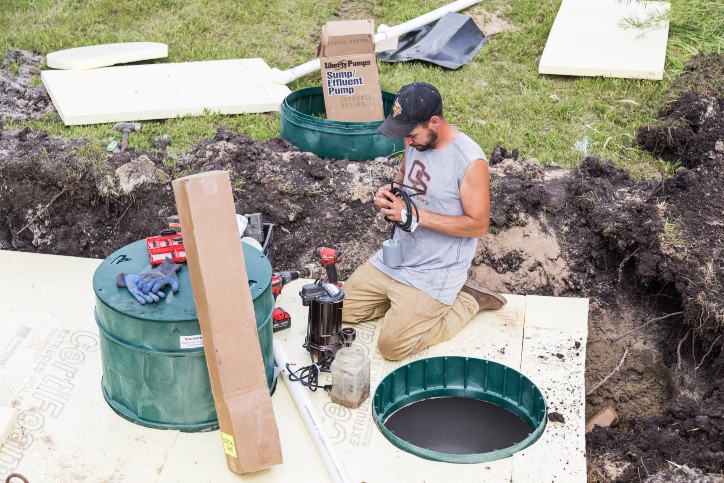4 Ways A Well-Maintained Septic System Helps The Environment
Florida homeowners depend on their local ecosystem for a variety of beneficial services. For example, households with a septic system rely on the absorption capacity of the soil in their drain field to effectively filter wastewater. Additionally, property owners heavily depend on the decomposition abilities of beneficial bacteria and microorganisms to break down solid waste before it exits the septic tank.
At Jones Plumbing & Septic Tank Service, our professional septic tank plumbers understand this symbiotic relationship that homeowners and ecosystems share. For over 30 years, our plumbers have advised households on smart septic tank care. By scheduling yearly inspections, repairs, and pump-outs, you can save money and protect natural resources.
Become an environmentally conscious property owner. Contact us today for more information on responsible septic system maintenance!

Preserve Local Water Sources
Annual inspections can help preserve the performance of your septic system and prolong its lifespan. By scheduling septic tank inspections, homeowners are able to catch issues early on and prevent the need for expensive septic tank repairs and full system replacements.
If left untreated, a leaking septic system can unleash pharmaceuticals and household cleaning chemicals directly into nearby water sources—harming local wildlife and impacting your drinking water. In severe cases, a failing septic system can result in the release of nitrogen and phosphorus into local ponds, lakes, and wetlands. This nitrogen and phosphorus can then contribute to the presence of unsightly algae blooms, which deprive aquatic organisms of necessary nutrients.
Protect Soil Quality
The purpose of a septic system's drain field is to naturally filter wastewater through several layers of soil, gravel, and sediment. Also known as a leachfield, a proper drain field is designed to remove disease-causing bacteria, pollutants, and contaminants. Effluent that is produced by the property enters the drain field from the septic tank and then percolates through the soil in the backyard. Without the drain field, the septic tank would overflow and ruin the soil with untreated sewage. In some cases, the effluent might even kill off beneficial organisms that are needed throughout the septic system—leading to costly repairs.
In order to preserve drain field soil quality, it is imperative that homeowners and property owners practice routine septic tank pumping. Regular septic cleaning and pump-outs can prevent your septic system from becoming overloaded. At Jones Plumbing & Septic Tank Service, our technicians are trained to perform safe and thorough septic tank cleanouts every 2—3 years, or as recommended based on your tanks size and your average household water usage.
Encourage Responsible Water Usage
In order to maintain a household septic system for the next 15 to 20 years, homeowners are strongly encouraged to educate themselves on water conservation techniques.
This is because the amount of water in a septic system has a greater impact on its livelihood than the amount of solids entering the system. In the event that too much water is introduced into the septic tank too quickly, the solids may be pushed into the drain field—eading to clogs and groundwater contamination. Additionally, all drain fields have an absorption capacity. Once it reaches this capacity, the septic system is at risk of experiencing drain field failure.
In other words, the more water in the drain field, the shorter its lifespan. Homeowners should avoid excessive use of appliances, such as dishwashers and washing machines, to avoid overwhelming the drain field. It is also wise to invest in low-flow shower head and faucet fixtures, which can reduce the amount of water used during showers, baths, and hand washing.
Prevent The Use Of Abrasive Chemicals
Septic tanks that rely on an aerobic treatment unit to function use compressed air to encourage microbe growth. These microbes break down organic waste material, thus reducing the amount of effluent that enters the drain field. The improper disposal of fats, oils, grease, paint, fuel, personal hygiene products, and household chemicals can throw off the balance of this system. The harsh chemicals will rapidly kill off this much‐needed bacteria.
As such, those hoping for a well-maintained septic system should never flush non-biodegrabable products down the toilet or garbage disposal. Instead, throw these items away in a trash can—away from local soil and water sources.
